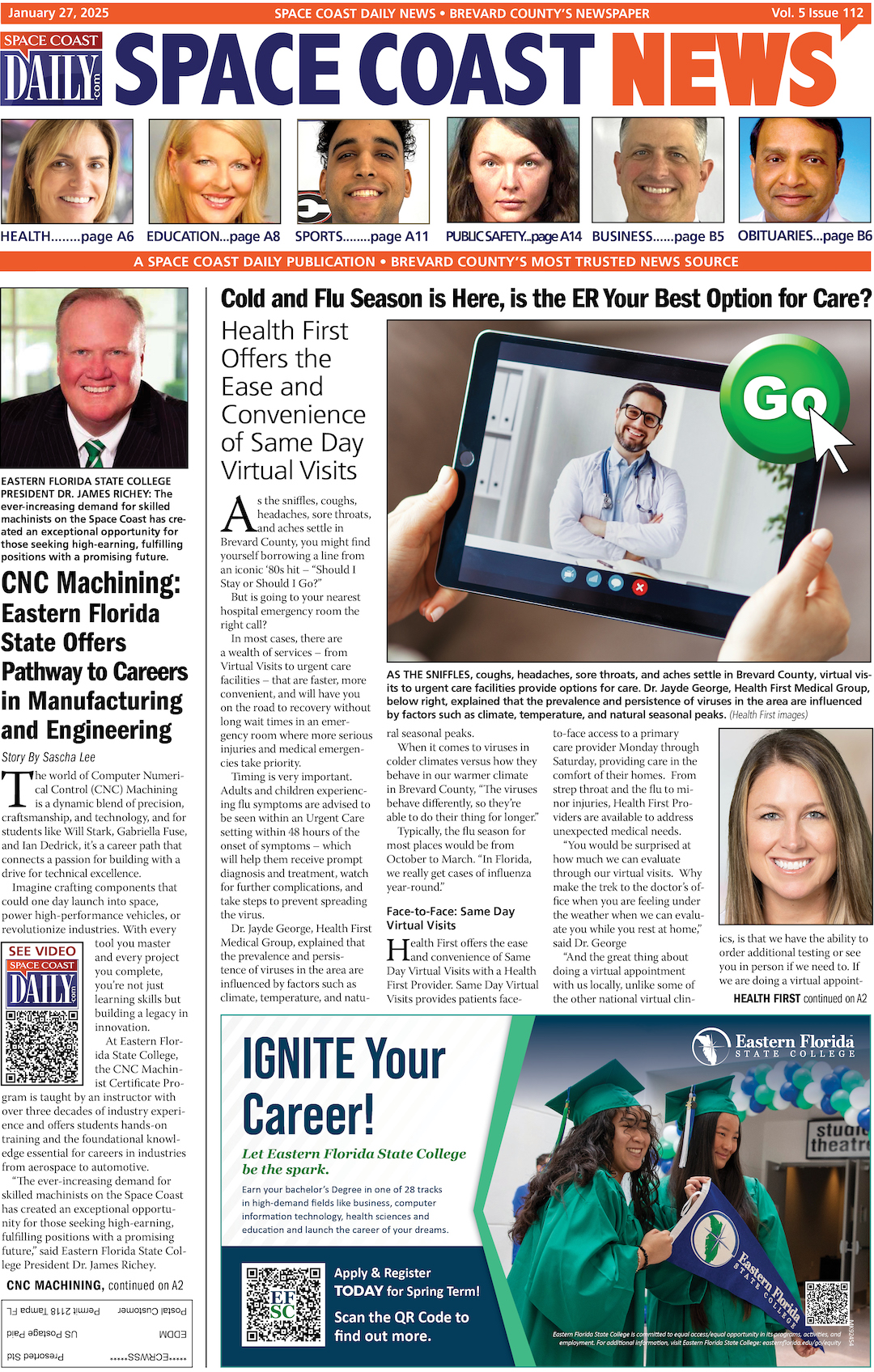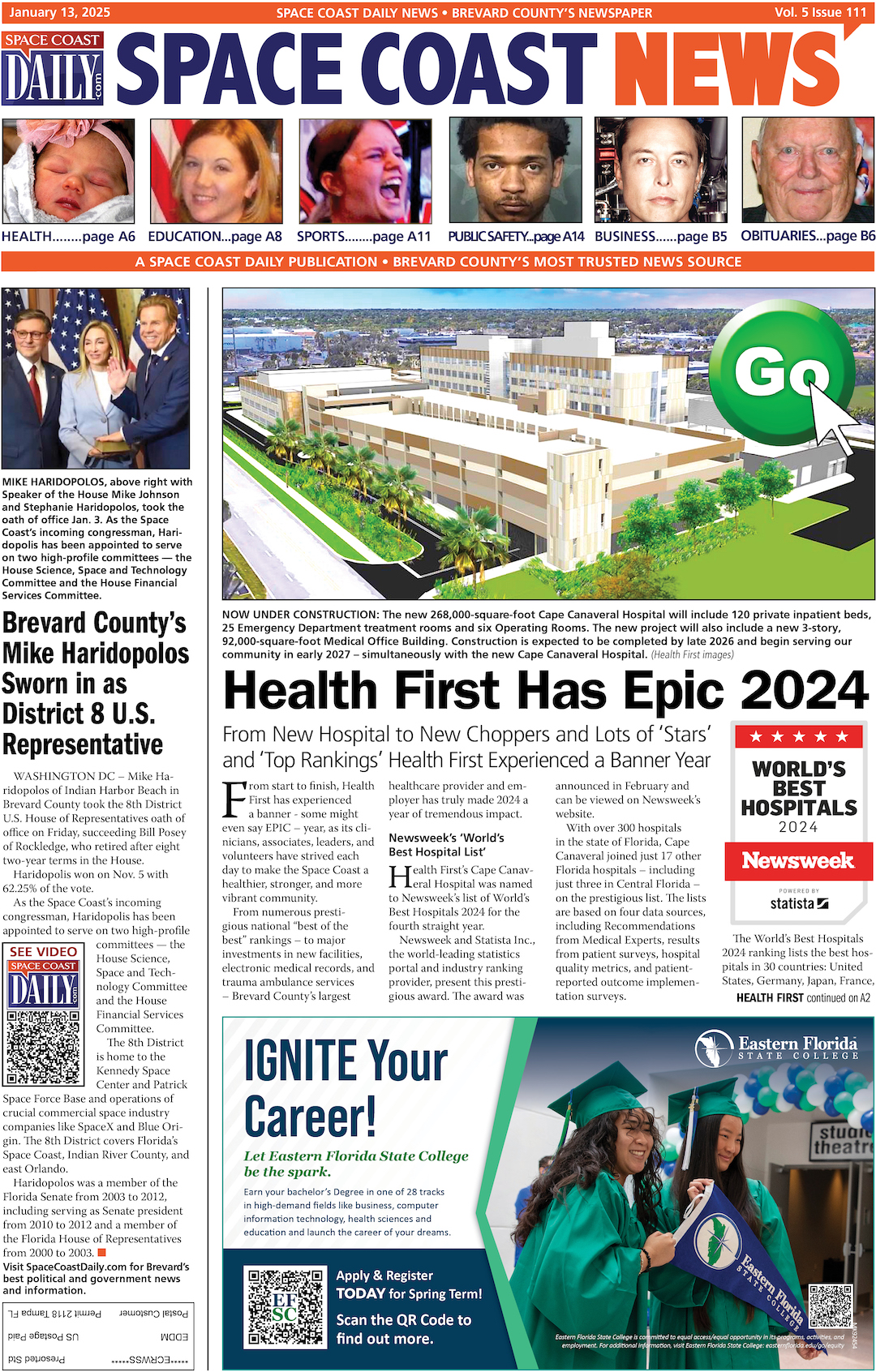Comfort vs. Cost: Crafting Corporate Travel Policies That Suit Everyone
By Space Coast Daily // January 21, 2025

Balancing comfort, convenience and cost in corporate travel policies can feel like walking a tightrope. A well-designed policy isn’t just about setting limits—it’s about creating a framework that ensures fairness, transparency, and satisfaction for employees while safeguarding the company’s budget.
This article explores how businesses can strike the right balance and how online corporate travel management companies can play a vital role in policy implementation and compliance.
The Foundation of a Balanced Corporate Travel Policy
An effective corporate travel policy is a critical tool for managing business expenses and supporting employees on the go. It’s not enough to set blanket rules—policies must be thoughtful and flexible to cater to diverse traveler needs while maintaining fiscal responsibility.
Start by defining priorities. Are cost savings the main objective? Or is employee comfort equally important? Clear objectives will guide decision-making and help determine the balance between essential and optional expenses.
Once priorities are established, outline key areas such as transportation, lodging, and meal allowances. For instance, flights might default to economy class, but policies can allow for upgrades on flights exceeding a specific duration. Similarly, hotel bookings can focus on mid-range options that prioritize safety, convenience, and amenities like Wi-Fi. These measures ensure employees feel supported without exceeding budget limits.
Involving employees in the policy creation process builds trust and encourages adherence. Collect feedback on existing practices and identify pain points. Understanding traveler preferences helps refine policies to align with real-world needs while maintaining company goals.
The Cost of Prioritizing Comfort
While comfort is essential for ensuring a positive travel experience, prioritizing it too heavily can lead to significant budget overruns. Upgrades to business class flights, stays in luxury accommodations, or unrestricted expense policies may boost employee satisfaction, but they can also strain company finances.
To strike a balance, businesses should evaluate the true return on investment for comfort-focused expenditures. For instance, offering business class only for flights longer than six hours provides much-needed rest without making it the default for every trip. Similarly, mid-range hotels offering essential amenities can provide comfort at a fraction of the cost of premium options, an important consideration for shorter trips.
The key is to maintain comfort where it has the most impact, such as during extended travel or in situations where well-being is critical for performance. A clear framework ensures employees feel cared for without excessive spending.
The Risks of Overemphasizing Cost
Overly restrictive travel policies designed to minimize costs can backfire, leading to low employee morale, decreased productivity, and potential policy non-compliance. Employees forced to book inconvenient flights or stay in subpar accommodations may feel undervalued, impacting their engagement and overall work performance.
For example, booking the cheapest flight might save money but result in long layovers, increasing travel fatigue. Likewise, selecting hotels in inconvenient or unsafe locations can add stress and logistical challenges. These cost-cutting measures can diminish the quality of business trips and, in turn, negatively affect the outcomes they are meant to achieve.
A successful policy avoids unnecessary frugality. Allowing reasonable flexibility and focusing on employee well-being can actually save costs in the long run by reducing burnout and increasing satisfaction. Balancing cost considerations with an understanding of employee needs is critical to fostering a supportive travel environment.
Integrating Online Corporate Travel Management into Policies
A well-crafted travel policy needs the right tools to bring it to life, and this is where online corporate travel management companies become indispensable. These platforms bridge the gap between policy design and execution, ensuring employees have a trouble free travel experience while following established corporate guidelines.
Streamlined Policy Compliance
Corporate travel management platforms allow businesses to embed policy rules directly into booking systems. For example, expense limits, preferred airlines, or approved hotel chains can be pre-set within the platform. Employees can then book travel confidently, knowing they’re acting within company guidelines. This seamless integration reduces errors and eliminates the need for constant oversight.
Enhanced Data and Analytics
One of the most powerful aspects of using these platforms is their ability to generate actionable insights. Analytics tools provide data on employee travel habits, expense trends, and vendor costs, helping companies refine policies based on real-world usage. For instance, if reports reveal frequent policy violations in a specific area, it might indicate a need to adjust allowances or clarify guidelines.
Simplifying Expense Management
Expense tracking is often a pain point in corporate travel. Platforms automate this process by consolidating receipts and linking them to bookings, ensuring compliance with reimbursement policies. Automated tracking reduces administrative burdens while ensuring employees are reimbursed quickly, enhancing a positive travel experience.
Supporting Flexibility Within Policy Frameworks
Modern travel platforms also allow for controlled flexibility. Employees can choose from pre-approved options within the system, tailoring bookings to their needs without exceeding limits. For example, travelers can select flights that suit their schedules while adhering to the cost limitations stipulated in the policy.
Creating Policies That Stay Relevant
A successful travel policy evolves with the times. Remote work, sustainability goals, and employee well-being have reshaped corporate travel expectations. Policies must address these trends to remain effective.
For instance, sustainability is a growing priority for many businesses. Travel policies can incorporate eco-friendly options, such as prioritizing hotels with green certifications or encouraging rail travel where feasible. Including these initiatives in policies not only reflects company values but also resonates with employees who care about environmental responsibility.
Similarly, flexibility is essential in today’s workforce. Employees often value options, whether it’s adjusting schedules or combining business trips with personal travel. Allowing controlled flexibility within policy frameworks ensures employees feel respected and supported, fostering long-term compliance.
It’s a Question of Balance
Crafting corporate travel policies that balance comfort and cost requires thoughtful planning and the right tools. By setting clear priorities, involving employees, and leveraging online corporate travel management platforms, businesses can create policies that align with both organizational goals and employee expectations. These tools not only enhance compliance but also provide valuable insights for ongoing improvement. As trends continue to shape the corporate travel landscape, staying proactive and adaptable ensures policies remain effective, relevant, and fair for all stakeholders.












